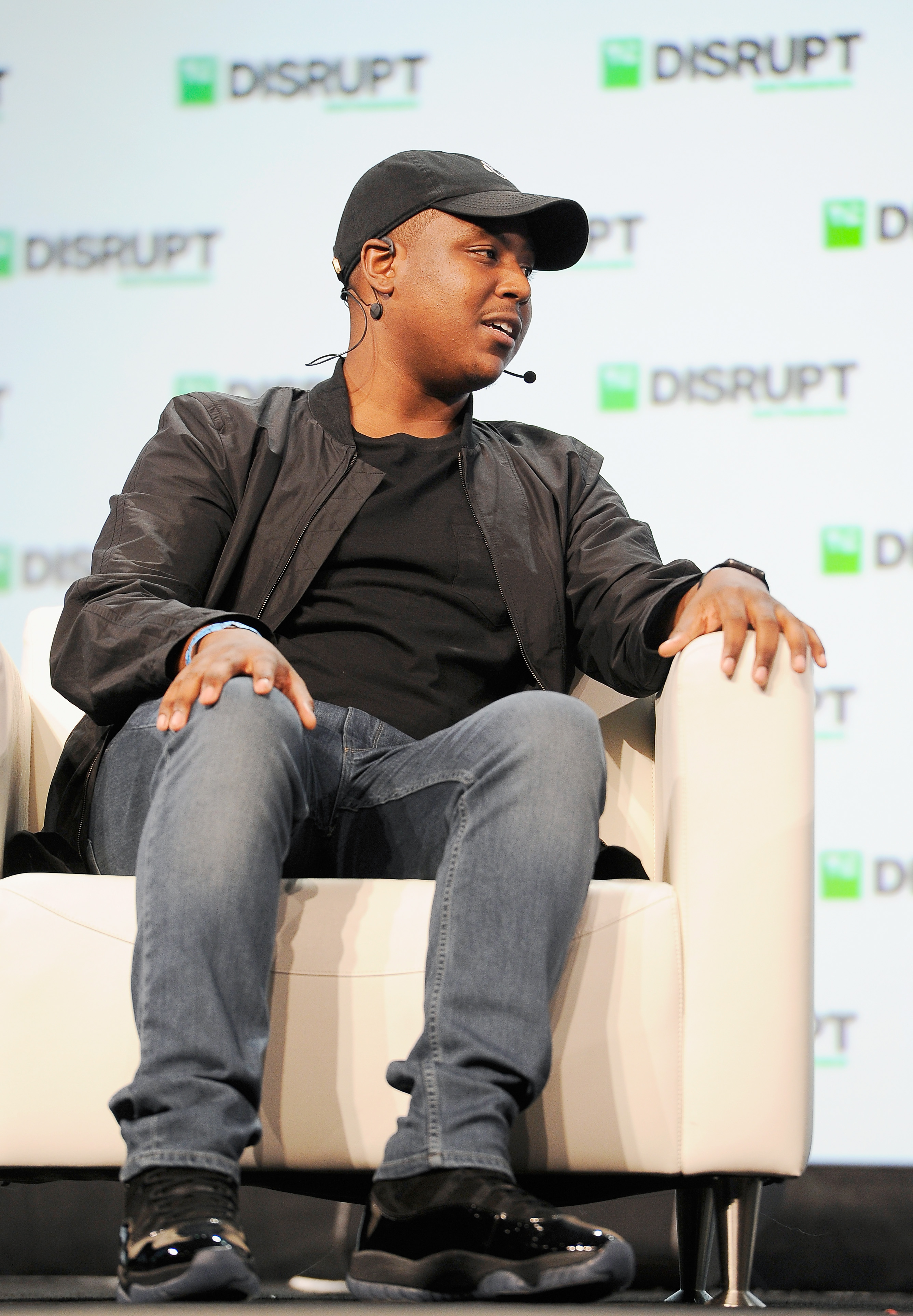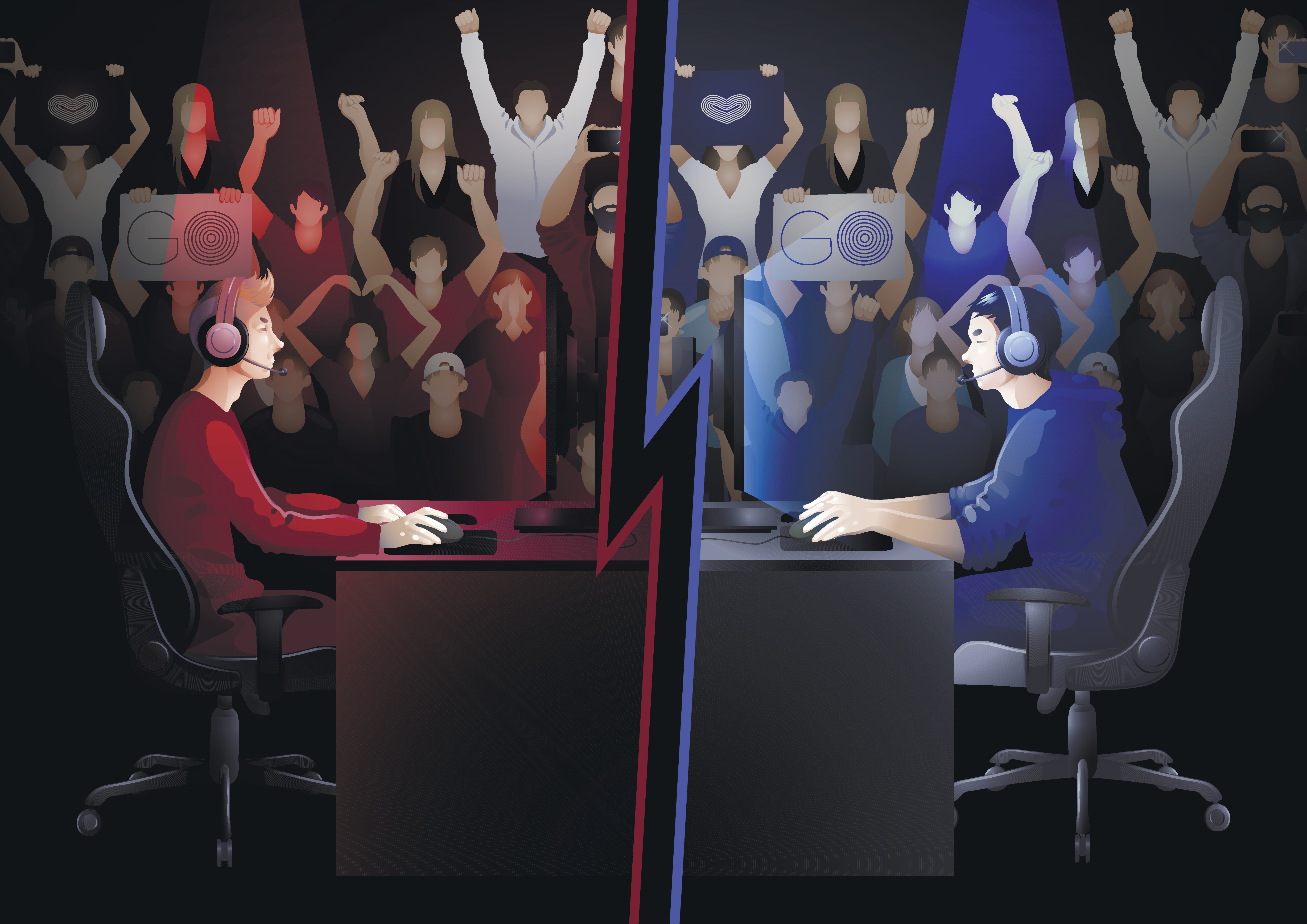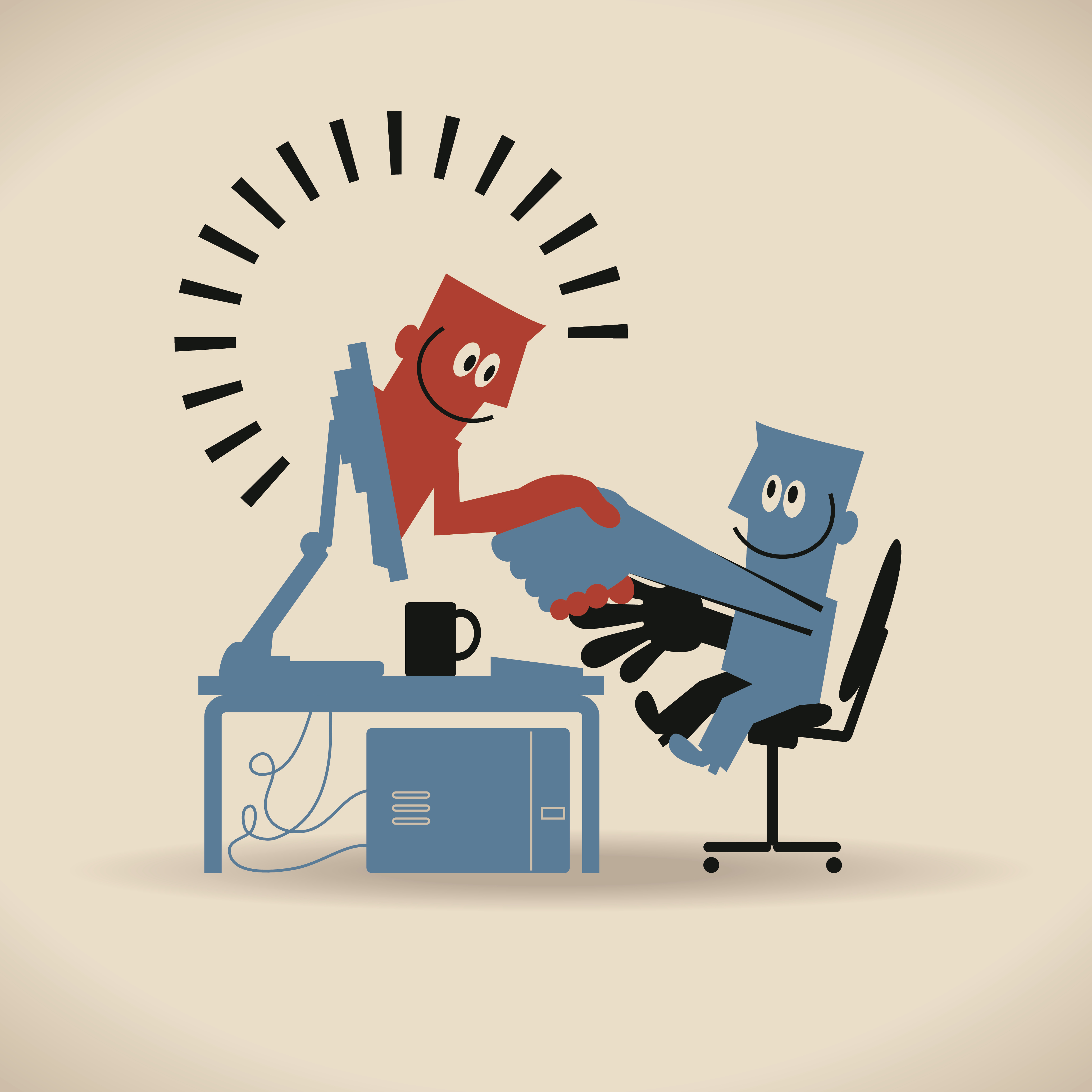Most of the buzz about esports focuses on high-profile professional teams and audiences watching live streams of those professionals.
What gets ignored is the entire base of amateurs wanting to compete in esports below the professional tier. This is like talking about the NBA and the value of its sponsorships and broadcast rights as if that is the entirety of the basketball market in the US.
Los Angeles-based PlayVS (pronounced “play versus”) wants to become the dominant platform for amateur esports, starting at the high school level. The company raised $46 million last year—its first year operating—with the vision that owning the infrastructure for competitions and expanding it to encompass other social elements of gaming can make it the largest gaming company in the world.
I recently sat down with Founder & CEO Delane Parnell to talk about his company’s formation and growth strategy. Below is the transcript of our conversation (edited for length and clarity):
Founding PlayVS

Eric P: You have a fascinating background as a serial entrepreneur while you were a teenager.
Delane P.: I grew up on the west side of Detroit and started working at the cell phone store of a family friend when I was 13. When I turned 16 or so, I joined two guys in opening our own Metro PCS franchise. And then two additional franchises. And I was on the founding team of a car rental company called Executive Rental Car.
Eric P: And this segued into tech startups after meeting Jon Triest from Ludlow Ventures?
Delane P: He got me a ticket to the Launch conference in SF, and that experience inspired me to start a Fireside Chat series in Detroit that brought in people like Brian Wong from Kiip and Alexis Ohanian from Reddit to speak. Starting at 21, I worked at a venture capital firm called IncWell based in Birmingham, Michigan then joined a startup called Rocket Fiber.
We were focused on internet infrastructure – this is 2015-ish – and I was appointed to lead our strategy in esports. So I met with many of the publishers, ancillary startups, tournament organizers, and OG players and team owners. Through the process, I became passionate about esports and ended up leaving Rocket Fiber to start a Call of Duty team that I quickly sold to TSM.
Eric P: What then drove you to found PlayVS? Did it seem like an obvious opportunity or did it take you a while to figure it out?
Delane P.: What esports means is playing video games competitively bound to governance and a competitive ruleset. As a player, what that experience means is you play on a team, in a position, with a coach, in a season that culminates in some sort of championship.
That experience only exists at the pro level where nearly 1,000 players compete across 18 pro leagues in North America. The majority of gamers with an appetite for esports have no structured environment to compete.
I honed in on competition infrastructure but there weren’t a lot of opportunities outside of self-reported wagering sites and static tournament bracket platforms. I met Peter Pham of Science [the startup studio in LA] and he suggested starting at the high school level. It was an idea he first heard from Matt Mazzeo at Lowercase (now at Coatue).
Eric P: And you partnered with Science to incubate the company?
Delane P: Science incubated us. One of my assumptions going into that was they would hold my hand through every step of building the company and that’s not what happened. There were plenty of times where I felt alone in the early days. Talia Rosenthal from the Science team was enormously helpful, however, as was Laz Alberto who joined Science later and is now with PlayVS full-time.
When I first moved from Detroit to LA in June 2017, I gave myself a year to figure out the idea or move on. There was a period of 4 or 5 months into 2017 when I was still working against the idea, where even people in the Science network were trying to convince me to do other stuff. People stopped believing in it. But I was super committed.
The gameplan

Eric P: You’re starting with a focus on high school esports but PlayVS has bigger ambitions. Why is high school the first step?
Delane P.: There are probably other ways to unlock this market opportunity, but to me, high school seems like the obvious place to start given the impact the system has had on other major sports in our country. In fact, all of our major sports except baseball started at the scholastic level and high school specifically has been a catalyst for growth.
It has all the ideal attributes: perfect demographic (13 to 18), existing infrastructure of facilities and coaches, and a proven model around sports. It’s inherently local, which is huge for esports because it follows the trend of franchised leagues.
Plus localizing fandom around specific esports and communities will help publishers seed new markets and allow organizations to tap into local revenues that traditional sports teams rely on. A fully developed high school system will drive sustainable growth across all of esports.
Starting in high school was important because it gave us the leverage to solicit IP from publishers who are typically walled gardened – similar to record labels in the music industry. We see a big opportunity in building a robust esports platform that is game-agnostic like what Spotify did for music.
And have successfully partnered with top-tier game publishers in ways no other companies have. This gives us an unprecedented opportunity to deliver real value to our players and strengthens our moat beyond HS.
We’re the first company to own a unique submarket of gamers where publishers see value, aggregate IP at scale with strong economics, and truly productize esports, and that’s really powerful.
The productization piece here is important because most people understand at a high level what esports is, but very few understand what the experience looks like. In football, we can identify the difference between playing catch, pick up 7-on-7, and the organized version of the sport.
In esports, most people can’t recognize the difference between playing video games, playing tournaments on bracket generators, and truly experiencing esports like most pros. We’re building this product and working alongside the publishers to educate the market.
Conquering global gaming

Eric P.: So pitch me the vision beyond high school – how does PlayVS become the biggest esports company in the world?
Delane P.: I actually think we’re building the biggest gaming company in the world. Gaming represents the next paradigm shift in social. People don’t just play Fortnite to compete, they play to connect with friends. As more people play games (and there are already billions of people who play games regularly), the preferred format is going to be esports.
Every aspect of the gaming experience has an emerging platform attached to it. For broadcasting there’s Twitch, for communications there’s Discord, for distribution there’s Steam. But esports has nothing. We’re going to build that and we think it is a 100M+ user subscription business.
Eric P: You mean there’s no go-to solution to take part in a competitive gaming event or league?
Delane P: What is available mostly depends on the game. But for the most part, people either play through the client or semi-competitively on tournament sites which are not the dominant format for esports and lack proper publisher support to provide an optimal player and spectator experience.
Eric P: How big do you believe the addressable market is?
Delane P: There are 2.2 billion gamers worldwide. Some market analysis say 645m gamers will either experience or want to experience esports by 2022.
We think there is a world where we could build out the market for amateur play similarly to fantasy sports where we reach 100m+ gamers globally who play various competitive formats for fun or prizes on our platform. These users will spend hundreds of dollars per year competing and training like the 60m people who play fantasy in the US and Canada and spend $556 per year on the activity.
We monetize the high school level with participation fees paid for either by the parent or school. As we grow, we’ll expand our business model by layering additional products and services onto our platform like highlight capturing, player and coach improvement tools, recruiting services, and generally things that make the experience better. We’ll also add sponsorships, merchandising, and broadcast rights—all things that align with traditional sports.
Our thoughts are very much aligned with Ben Thompson’s aggregation theory. If we’re the central place where people come to compete (which is why they play games anyway), then we can be the place where they stream, where they watch, where they communicate. We can even be the distribution itself. All of those other aspects of gaming that are platforms today, they will exist on our platform. No different to what Facebook did for social or Amazon did for commerce.
Leveling up: What’s next for PlayVS

Eric P: We’re finishing the first school year that PlayVS had an active league operating. What did the launch of this look like?
Delane P: I created this list of three north stars that I needed to work towards. I needed distribution so I focused on partnering with the NFHS, which operates parallel to the NCAA for high school. Two, I needed game publishers. Third, we needed to build the software infrastructure.
We partnered with Riot and launched League of Legends in five states as a state championship sport. That season went really well. It ran from October to January. We’re now at the end of the Spring season, which ran from February to May. We launched two more games (Rocket League and Smite) and we expanded to 15 states in the Spring.
Eric P.: What were the biggest lessons learned from that first season going into the Fall?
Delane P.: Well here are three hypotheses we validated:
- Esports programs have a material impact on student performance. Kids who participate improve their attendance and grades.
- Schools have enough hardware and resources to support these programs.
- There is a lot of pent up demand for esports in high schools.
Two important lessons for us were that a) users want to do more than play on our platform, and b) educators understand how to navigate friction in school processes better than we do. So we have more product to build beyond the gameplay experience. We have also made a point to hire people who were teachers, counselors, IT directors, and coached in our first season to work on our Customer Experience team.
Eric P: What will PlayVS roll out over the next few months as you enter Year Two?
Delane P.: We’re getting more organized, we’re hiring people, we’re adding structure and processes that allow us to scale. Our product has become more complex as we’ve added more games, more states, and now we’re really thinking about how we scale beyond high school, so that requires a bit of rebuilding.
The UX/UI redesign will launch around August and so will a company rebrand. Our name will continue to be PlayVS but the marks and other things will be different.
Our product today is closed, you have to be within high school to use it. We’re opening it up. We’re growing at the high school level, more states and more games that’ll be available in the Fall. We’re also moving into the collegiate level. And within the next year, we’re going to be unveiling what our proxy to everyone is.
Teaming up: Publisher partnerships with PlayVS

Eric P: What are your relationships with the game publishers like? How involved are they in PlayVS?
Delane P.: Game publishers have embraced PlayVS and we’re lucky for it. The work we do integrating with each other is difficult, especially at scale. And for most of them, this is new tech they have to build. In the future, we’ll have an SDK, but today our teams equally view these relationships as complete partnerships and work side by side to enhance the product experience for players.
Eric P.: But if you start getting really big then the dynamics the publishers switch in that they’re worried about becoming too beholden to you.
Delane P.: We have a natural codependency with game publishers and are ok with this dynamic given the shared value exchange. Ultimately, most publishers have decided they’ll focus their efforts in esports on developing professional (and for some, collegiate) leagues.
It makes little sense for a publisher to try to own the amateur system considering they’d be limited to their own IP. Plus, when you factor in the politics and nuances they’d face building out systems like varsity high school, it’d be expensive and time consuming when evaluating opportunity cost in the market.
I think the publishers have found its best to partner with us and support our tech. This way they’re able to complete the “path to pro” pipeline for their game with real legitimacy, generally sustain and acquire new players for their IP, and even hedge against the possible failure of the IP longterm by having distribution setup for future games.
Eric P.: Do they make any money off of you right now?
Delane P.: They don’t monetize our relationship today. But as we expand beyond scholastic, there could be opportunities where we provide revenue-share or create in-game content together. Most publishers don’t monetize esports outside of pro league revenue—ticket sales, sponsorships, broadcast rights, apparel, etc. We’ll be able to offer them a low effort, high margin revenue stream that’s unavailable today.






























Comment